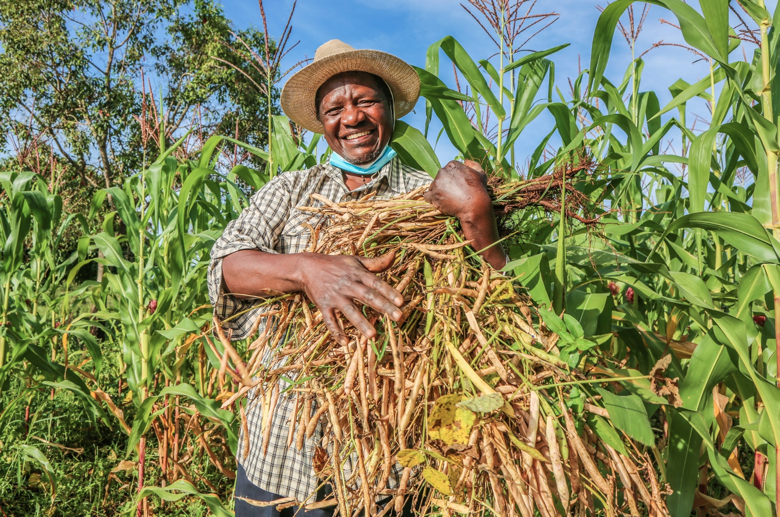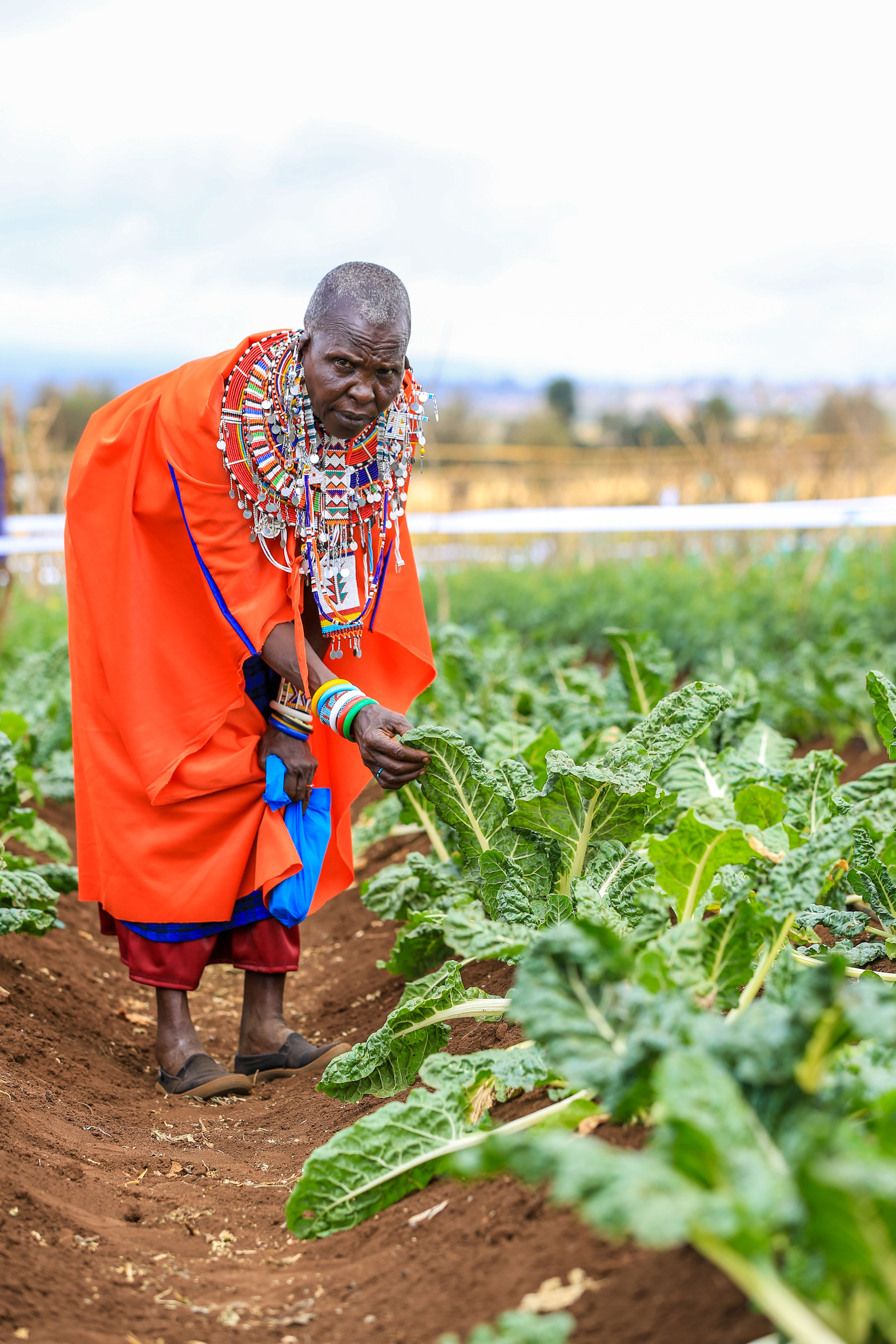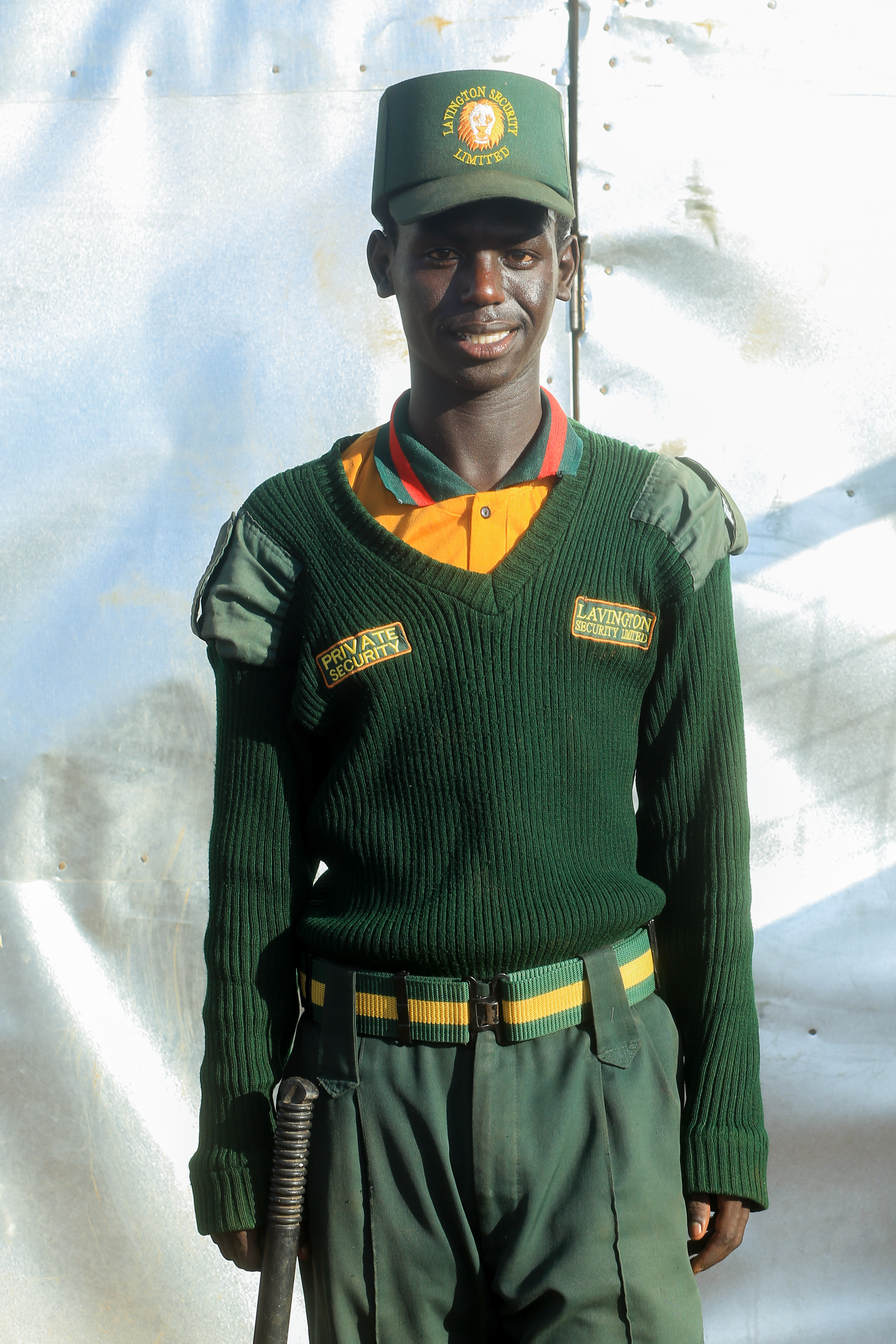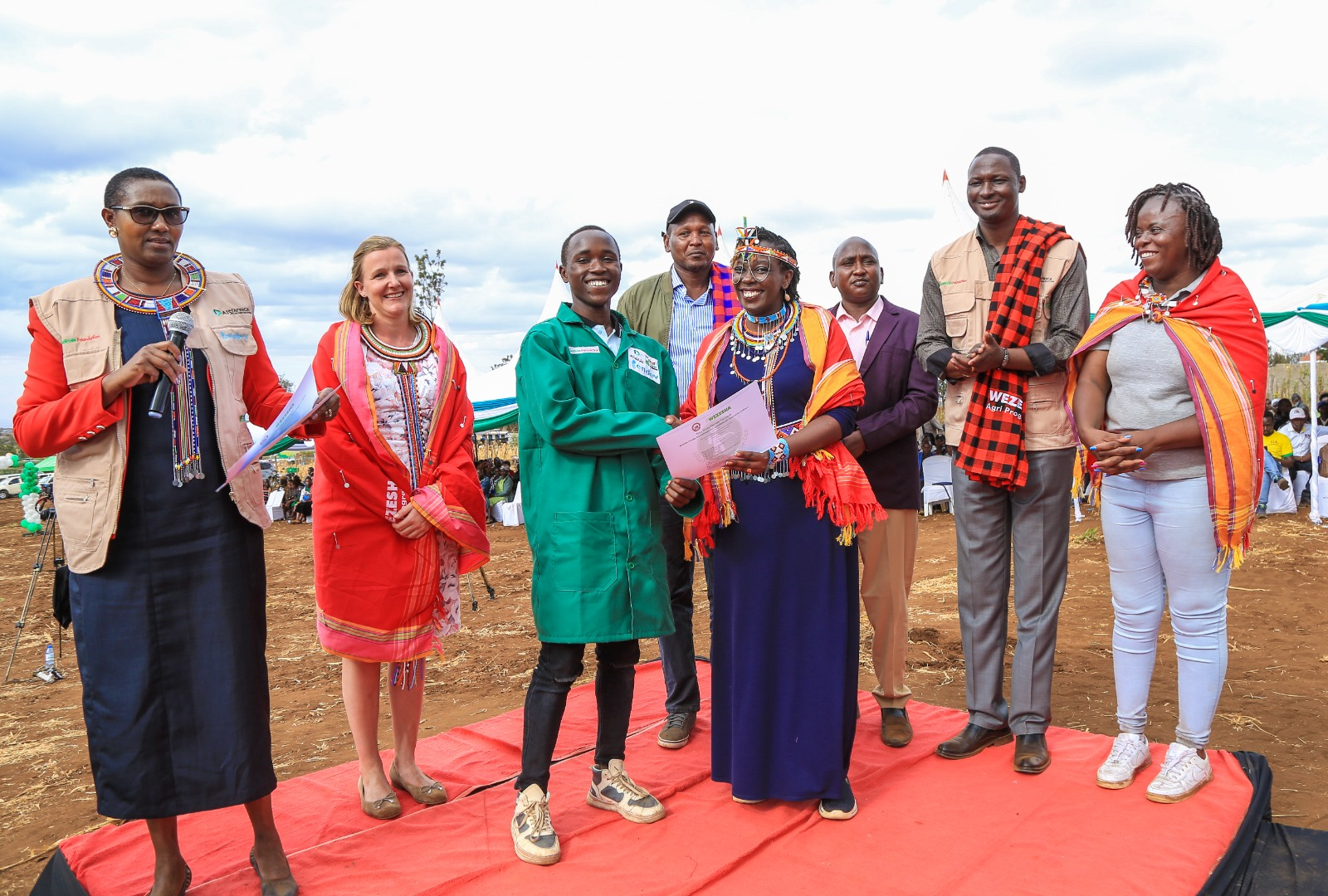FROM LEAVES TO PULSES: A farmer’s successful transition journey from Tobacco to High iron beans.
Reginald Omulo, a 66-year-old farmer, walks between rows of healthy maize and beans plants, stopping to admire and harvests a few of the beans he has planted 2 acre piece of land. Like many farmers in Uriri Sub-county, Migori County, Omulo, a former large scale Tobacco farmer but since turned to other alternative livelihood among them High Iron Beans (HIB) farming, is passionate about his family’s new venture, confident that their hard work will be the foundation for a brighter future for themselves and the community at large.

Through the Farm to Market Alliance program(FtMA), a pilot under the Alternative Livelihoods (AL) project, is working with farmers like Omulo in Migori county that are exposed to ill health through: nicotine absorbed through the skin, heavy pesticides and tobacco dust, loss of biodiversity, soil erosion and degradation, atmospheric carbon dioxide and dishonesty of leaf buying companies in terms of grading and pricing, unequal trading relations with only one potential buyer who dictates the terms and conditions. This is an initiative spearheaded by the World Health Organization (WHO), Food and Agriculture Organization (FAO) and WFP. The aim of the AL project is to use the collective purchasing system within the United Nations and create an enabling and supportive crop production and marketing ecosystem that incentivize farmers to move away from tobacco farming.
Omulo was once an influential leader at Kenya National Tobacco Farmers Association (KENTOFA) which advocates for Tobacco farming across the country. It is a title he says that saw him traverse the world in such of more knowledge as well as expand markets for Tobacco farmers in Kenya.
Even after many years of growing tobacco, Omulo says he did not reap the benefits of the crop thus the transition to other alternative livelihood such as zero grazing, high iron beans and maize farming.
” I regret planting tobacco for many years! I wish I knew of other alternatives earlier,”says Omulo.
According to Omulo a large chunk of farmers in Uriri sub-county are an angry lot. Farmers here feel duped by the tobacco companies due to poor prices offered on this crop.
” You have to work throughout on the tobacco farms and you do not know how much you are going to gain because the prices are set by the tobacco companies. This is purposely so they can gain more! They set up so many grades on the crop and they set your crop within those grades. It’s a crop you grow but cannot estimate the yields at all as a farmer,” Omulo said.
Omulo also says farming the crop is labor intensive. This has resulted many men getting into polygamous marriages to cut on labor costs.
” If you didn’t have two wives or more with children you cannot grow tobacco farming because the crop is labor intensive” says Omulo.
Many families practicing Tobacco farming in this region have children who continue to miss classes and eventually drop out of school.
” Many families of tobacco farmers have children who never go to school because all along they could not afford enough money to take their children to go to school. Again, most children could be the laborers on the farm either curing the plants or harvesting the crop” says Omulo
Not only has Tobacco farming affected the wellbeing of families farming this crop here but also continues to cause adverse health effects.
“There were times we would have high child mortality deaths and pregnant mothers as well as a result of diseases such as cancer, Tuberculosis (TB) and chronic obstructive pulmonary disease (COPD)
Omulo is clear to point out that Tobacco farming cannot be compared to high iron beans farming which is less labor intensive and easier to manage. Ever since the Alternative Livelihood program was introduced in this region early September 2021, many farmers trained by Farmer Service Centers (FSC’s) have since shifted from Tobacco farming to High iron beans farming thus improving their livelihood.
According to the Ministry of Agriculture, Migori County,out of a total of 400 farmers targeted in the region 330 farmers have transitioned successfully from Tobacco to high iron beans farming.
Many girls in this region previously opted to early marriages as a result of poverty but the narrative here has since changed when farmers began to shift to alternative livelihoods.
” Nowadays we have an increase in high school intake as now many children can afford to continue with their education. Previously, school-drop out was so high especially among girls”..Omulo says.
Alternative Livelihood(AL) has managed to transform the lives of many farmers here among them Reginald Omulo otherwise known to many here as ‘Major’. Through the Farm to Market Alliance (FTMA) under the Farm Service Centers (FSC) and ministry of Agriculture, Omulo was trained intensely on soil and farm preservation, getting the right seeds, planting, weeding, spraying and harvesting. Thereafter he adopted the knowledge and skills he learned from the training to begin farming high iron beans on a half-acre piece of land.
Omulo is now practicing intercropping, a better farming method. In September 2021 he planted high iron beans and his yields have really improved.
” The training has really helped me. Now I have better yields. In one bean plant I get between 20- 27 pods. It was not the case before. Previously on an acre piece of land I would get between 3 - 4 bags but ever since I was trained, now I have received 8 bags” Omulo said.
Farmers such as Reginald Omulo have since transitioned completely from Tobacco farming to alternative livelihoods. He continues to inspire many other farmers in this region to do the same.
AL project which is implemented by Cereal Growers Association (CGA) in partnership with the Ministry of Agriculture, Migori County. The project aims to shift tobacco growing farmers to other alternative crops such as High Iron Beans to achieve; better health outcome, environmental preservation and have economic freedom for all.
HealthArticles from Josephine Maina
View blog
When Lucy Tatia whose crops failed due to lack of rain a year ago, she thought her life as a farmer ...

Rural youths are the future of food security. Yet around the world, few young people see a future fo ...

Globally, climate change posses a significant risk threatening the lives and livelihoods of communit ...
You may be interested in these jobs
-

Finance Intern
Found in: beBee S2 KE - 1 day ago
GIZ KE Nairobi, Kenya Full timeABOUT THE COMPANY · GIZ, the German Gesellschaft für Internationale Zusammenarbeit GmbH, provides services in the field of international technical cooperation worldwide. In Kenya, it has been active since 1964, and up to now implements programs in a wide variety of areas, includi ...
-

Graphics and Animation Intern at
Found in: beBee S2 KE - 5 days ago
Kenya Association of Manufacturers Nairobi, Kenya Full timeKenya Association of Manufacturers is the representative organisation for manufacturing value-add industries in Kenya. Established in 1959 as a private sector body, KAM has evolved into a dynamic, vibrant, credible and respected business association that unites industrialists and ...
-

Senior Internal Auditor
Found in: beBee S2 KE - 3 days ago
Kenya Civil Aviation Authority Nairobi, Kenya Full timeABOUT THE COMPANY · Kenya Civil Aviation Authority (KCAA) was established on 24th October 2002 by the Civil Aviation (Amendment) Act, 2002 with the primary functions towards; Regulation and oversight of Aviation Safety & Security; Economic regulation of Air Services and developme ...
Comments